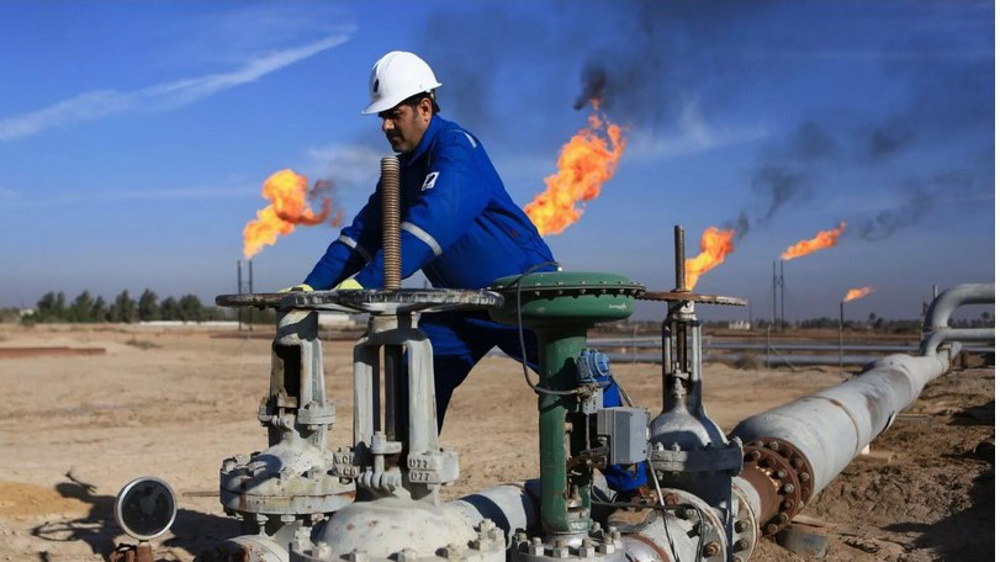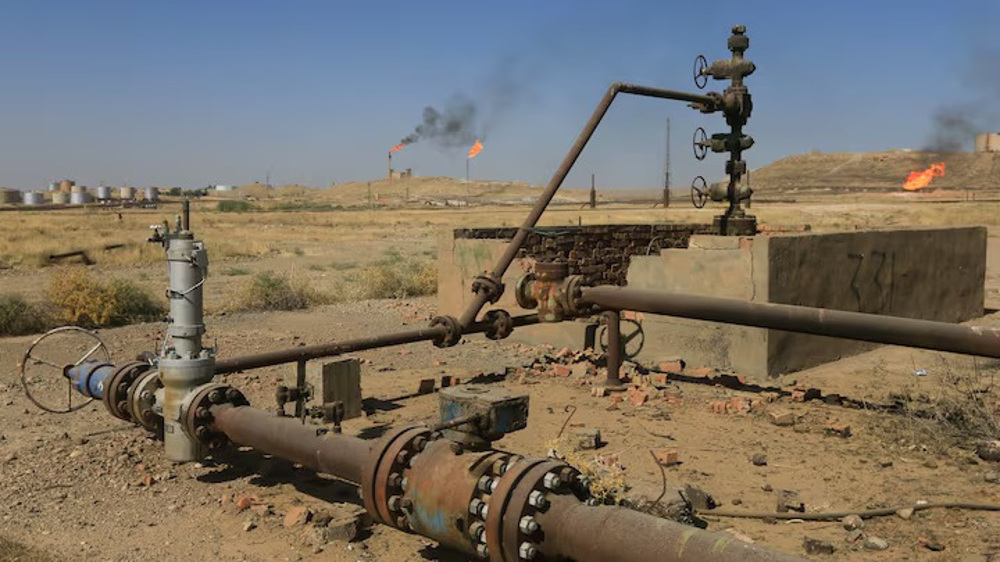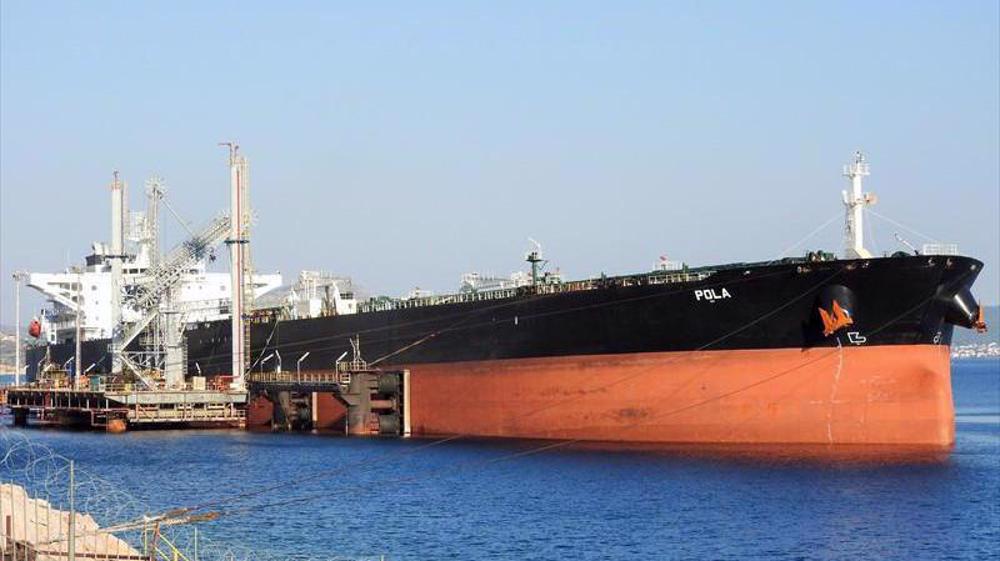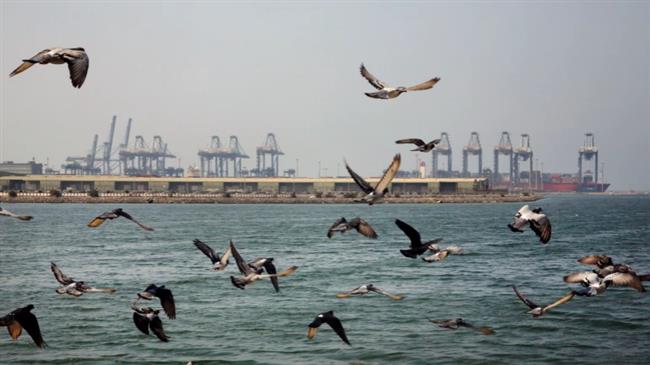Iraq says defused mine on oil tanker in Persian Gulf
The Iraqi military says it has successfully dismantled a mine that was discovered stuck to the hull of an oil tanker in the Persian Gulf earlier this week.
In a statement carried by the media office of the Iraqi Joint Operations Command on Saturday, the military announced that explosives experts of the Interior Ministry had in cooperation with the Navy defused the mine.
It said Iraqi authorities have opened an investigation to find out the circumstances of the incident.
The mine was discovered on Thursday afternoon, when the tanker was in international waters - about 28 nautical miles (52 kilometers) off Iraq’s coast in the Persian Gulf - supplying another ship with fuel, according to a statement from the Iraqi government.
The Interior Ministry then formed an explosives-handling team that was airlifted to the affected oil tanker.
“Despite the height and intensity of wave movement, it was able to evacuate the other ship and keep the ship that showed a large marine mine attached,” the statement read.
The Iraqi government has not provided further details about the incident, but two private security firms said the discovery was likely a limpet mine on the MT Pola, a Liberian-flagged tanker.
A limpet mine is a type of naval mine that is usually manually placed by a swimmer, diver or frogman on the underside of a ship's hull.
It wasn’t immediately clear who may have placed the device on the oil tanker.
The discovery came amid heightened tensions between Iran and the US in the final days of President Donald Trump’s administration.
Iranian Foreign Minister Mohammad Javad Zarif urged Trump on Saturday not to be “trapped” by an Israeli plan to provoke a war through subversive acts in Iraq.
He issued the warning on the anniversary of the US assassination of top anti-terror commander General Qassem Soleimani by a drone strike in Iraq.
“New intelligence from Iraq indicates that Israeli agent-provocateurs are plotting attacks against Americans — putting an outgoing Trump in a bind with a fake casus belli (act justifying war),” Zarif said in a tweet.
“Be careful of a trap, @realDonaldTrump. Any fireworks will backfire badly,” Zarif wrote.
The incident involving the Iraqi tanker brings back to mind a series of "suspicious" attacks on oil tankers in the Middle East in June 2019, which the United States was quick to blame on Iran.
The news of the first attacks came just as Japanese Prime Minister Shinzo Abe was to meet Leader of the Islamic Revolution Ayatollah Seyyed Ali Khamenei in Tehran.
US Secretary of State Mike Pompeo said immediately, “It is the assessment of the United States government that the Islamic Republic of Iran is responsible for the attacks that occurred in the Gulf of Oman today.”
The attacks coincided with the deployment of additional troops and military assets by the US to the Middle East, quite similar to what the past few days have seen in the region.
On Wednesday, two nuclear-capable American B-52 bombers flew over the Persian Gulf after nonstop flights to the region from their US-based hangars.
The US Navy also announced the arrival of a nuclear-powered submarine in the Persian Gulf last week. The USS Georgia passed the Strait of Hormuz accompanied by two American warships, making it the first missile-loaded submarine of its kind to enter the Persian Gulf in eight years.

Iraq warns Syria over security threats posed by Daesh remnants

Iraq denies it is resuming oil exports from Kurdistan under US pressure

US pressurizes Iraq to resume Kurdish oil export or face sanctions: Report
Iranian flotilla makes port call in India with 'friendship message'
How UK counter-terror police colluded with Zionists to detain me after Beirut trip
Biden, Blinken, Austin referred to ICC over Gaza war crimes
EU will 'do the same' if US implements tariff hikes: France
VIDEO | Press TV's news headlines
British celebrities condemn BBC removal of Gaza documentary
Iran Army acquires tactical vehicles, audio surveillance systems
VIDEO | UK police detain anti-Zionist scholar upon return from Lebanon










 This makes it easy to access the Press TV website
This makes it easy to access the Press TV website